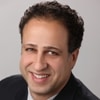
Anthony Guerra, Editor-in-Chief, hsCIO.com
“So what would you do differently next time?” I asked a CEO at the recent CHIME Fall Forum, holding my breath.
And I held my breath because the question implies a mistake has been made — usually a dangerous thing to do with most CEOs.
But without missing a beat, he told me exactly what he will do differently next time, and he answered without any hesitation, hedging or embarrassment. In fact, I think the CEO was downright happy he’d learned something and not sunk the ship in the process.
In healthcare, we call these near misses or sentinel events. They imply that something serious has happened, but nobody died. The key in a learning health system is to, well, learn — to make sure that we extract some nuggets of wisdom from harrowing experiences and work those into our protocols and procedures so they don’t happen again.
When we try our best but fall short, the wisest of us do just this — extract the lessons learned and quickly leave the regret behind. And I think that was the most interesting thing about my CEO above. He didn’t beat himself up for a second, and he didn’t try to hide the fact that he’d not been perfect.
And that takes me to a talk with a doctor friend of mine at the same conference. When I ran into him, he was lamenting the fact that he couldn’t locate some folks he hoped to meet.
“Did you reach out before the show to set up a time?” I asked.
“No,” he said. “I thought that was a little too forward.”
My observation, which I related to the good doctor, was that there was nothing wrong (and everything necessary) about asking for what you want. In his experience as a doctor, folks always came to him. But now, wearing a different hat, it was time to realize that some gentility must give way.
As my friend’s grandmother used to say: “You have to go to the club to meet girls.”
“Why’s that grandma?” my friend would ask, setting her up for the punchline.
“They’re not coming to your door,” she deadpanned.
After hearing my opinion that he’d better get over his fears of impertinence or rejection, I was amazed to hear this response:
“I think you may have a point there,” he said, pondering.
Now, the point is not that I made a point (for determining whether I did or not is pointless) but rather that the doctor, much like the CEO, was totally unfazed admitting to himself and to me that he had made a mistake, or that there was another way to handle a situation.
Having been in business for nearly six years now, I can tell you that this is the greatest strength anyone can have — the aforementioned and afore-described one of being willing to learn, to admit mistakes and to change. For when we truly embrace that quality, we are never out of the game.
As such, it is no longer accomplishment in and of itself that impresses me, but achievement coupled with humility and a willingness to admit mistakes.
Perhaps no one better expressed when and how we should change our views — too soon and we have no backbone; too late and our obstinacy causes us to ignore the good counsel of trusted advisors — than Abraham Lincoln.
“I shall do less whenever I shall believe what I am doing hurts the cause, and I shall do more whenever I shall believe doing more will help the cause. I shall try to correct errors when shown to be errors; and I shall adopt new views so fast as they shall appear to be true views.”


Share Your Thoughts
You must be logged in to post a comment.